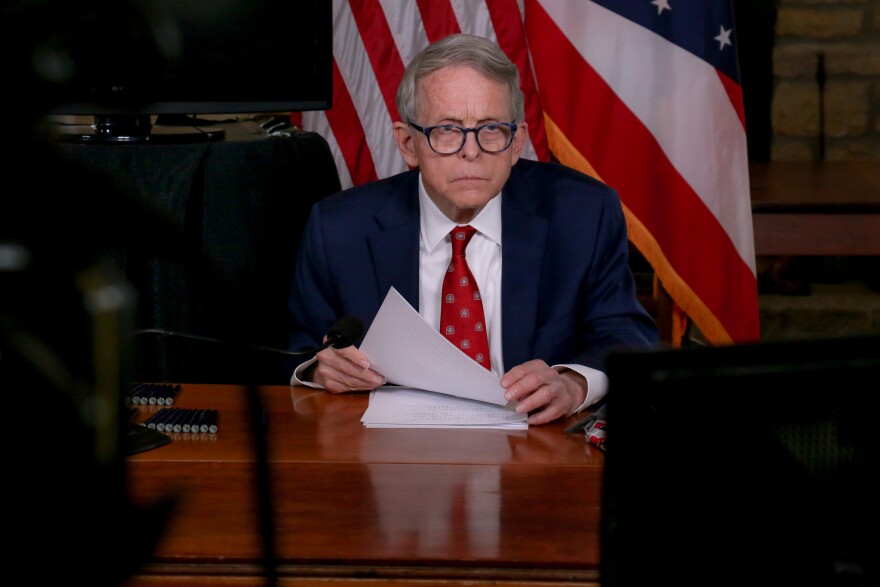Gov. Mike DeWine announced that tomorrow he will officially veto SB22, a Republican bill that would heavily restrict the state's ability to issue health orders during an emergency.
Speaking at his coronavirus press briefing Monday, the governor warned that the bill would endanger the health and safety of Ohioans far beyond the current pandemic.
"The bill that was passed by the General Assembly, by the Senate, by the House, will have an impact far beyond this pandemic," DeWine said. "It should not be looked at as the legislature's answer to what we need to do in the pandemic, because it goes so much further than that. It really would decimate local health departments' ability to keep the citizens of their community safe, in things well beyond this pandemic."
Earlier on Monday, DeWine sent a letter to state lawmakers that pleaded for compromise, and predicted a chaotic future if the law impeded the administrative branch's ability to respond to COVID-19 or future health crises.
In particular, DeWine mentioned how the bill prohibits the state or local health departments from requiring someone to quarantine or isolate unless they, or someone they've been in direct contact with, has been "medically diagnosed."
DeWine discussed how two Miami University students returned to campus from Wuhan, China, and were required to self-quarantine for five days while the state awaited test results from the CDC – since it didn't have any tests in-state at the time. If the students had refused, and had eventually tested positive, the health departments would have been "helpless" to stop the students from infecting an untold number of fellow students and Butler County residents.
Ohio's chief medical officer, Dr. Bruce Vanderhoff, said Monday that quarantine and isolation are among the "oldest and most effective health measures we have." Vanderhoff said they're particularly helpful tools in limiting the spread of diseases that can occur even before a person shows symptoms – such as COVID-19, Measles, smallpox, Ebola, SARS and MERS.
In addition, DeWine called the bill a "trial lawyer's dream," saying it would expose Ohio, its universities and local health departments to lawsuits related to emergency orders – even those not related to health crises.
"At precisely the times that government must act with focus and resolve making immediate, decisive, gut-wrenching, and often unpopular decisions, SB22 flings the Courthouse doors wide open for immediate judicial intervention," DeWine wrote in his letter, adding that courts will then be placed in the position of shaping emergency responses.
SB22 passed with no Democratic votes in the GOP-controlled Ohio House and Senate earlier this month. Leaders say they have enough votes to override DeWine's veto.
Despite those warnings, DeWine said that he holds out hope for a solution, and he submitted a proposed deal that he argues would allow lawmakers some of the oversight they seek. He did not disclose the details of those proposal.
What questions do you still have about COVID-19 and Ohio's response? Submit below and WOSU may answer as part of our series A Year Of COVID.
_




